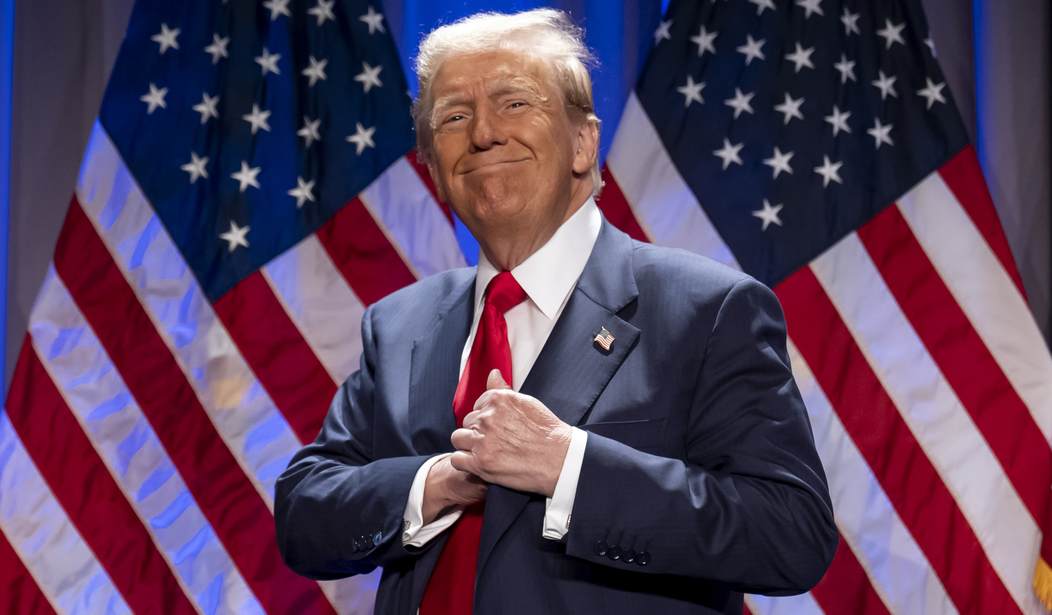When one considers Donald Trump's Cabinet selections announced thus far, there are a few themes that emerge.
One discernible theme, which has been the subject of constant teeth-gnashing all week, is the unorthodox or perhaps outright surprising nature of some of the picks. Tulsi Gabbard, tapped as our next director of national intelligence, is not a career spy. Pete Hegseth, Trump's inspired choice to be our next secretary of defense, is not a company man who steadily worked his way up through the Pentagon's labyrinthine bureaucracy. Robert F. Kennedy Jr., tapped to lead the Department of Health and Human Services, is a famously iconoclastic figure. And if you had consummate "Florida man" Matt Gaetz on your bingo card as Trump's pick for U.S. attorney general, then you're quite a bit more prescient than me.
But there is at least one other clearly discernible theme that emerges when one considers all those who Trump has picked to surround himself with: Many of these people are young.
Gabbard is 43. Hegseth 44. Gaetz is 42. Elise Stefanik, Trump's pick for ambassador to the United Nations, is 40. Lee Zeldin, Trump's pick for Environmental Protection Agency administrator, is 44. Vivek Ramaswamy, who will manage the newly announced Department of Government Efficiency alongside Elon Musk, is 39. Marco Rubio, Trump's pick for secretary of state, isn't exactly an old geezer at 53; ditto his fellow Floridian Michael Waltz, Trump's pick for national security advisor, who is 50. And lest we forget, Trump's own running mate and soon-to-be vice president, JD Vance, just turned 40 a few months ago.
That is a lot of high-ranking young -- or at least comparatively young -- people. And there are still many top positions in the second Trump administration that remain unannounced, raising the distinct possibility of even more young blood getting tapped for powerful leadership positions. What exactly is going on here?
Trump, it seems, is not merely interested this time around in draining the swamp once and for all. He will not be content with just finishing the unfinished work of truly making America great again. Rather, he has a greater goal in mind: He is trying to foster an intergenerational legacy and solidify MAGA as America's dominant early-to-mid-21st-century political movement.
Recommended
American history has often been defined by political movements that dominate not merely a singular eponymous presidency but a broader epoch. There was the protectionist "American System" of Henry Clay. There was Jacksonian populism. There was the era of the welfare state, epitomized by Franklin Roosevelt's New Deal and Lyndon Johnson's Great Society. There was the laissez-faire "Washington Consensus" of the late-20th-century Ronald Reagan, George H.W. Bush and Bill Clinton presidencies.
Now, Trump wants MAGA to be the defining political movement of our own era.
And why not? Trump has already secured the most racially, ethnically and religiously diverse winning presidential coalition in modern Republican Party history. He has made historical inroads with Hispanic voters, Black men and voters under the age of 35 -- the very groups that formed the core of Barack Obama's own twice-victorious presidential coalition. He has managed to maintain an economic appeal to everyone from billionaire entrepreneurs like Musk to Sean O'Brien, the Teamsters president who gave a primetime speech at this summer's Republican National Convention. There are already numerous high-profile former Democrats, such as Gabbard and RFK Jr., who have been tapped to Cabinet-level posts.
Obama's one-time "coalition of the ascendant" has, in fact, descended. It has crashed and burned, and the modern Democratic Party is nothing less than vanquished. And what has risen in its stead? That would be the movement that delivered Republicans their first national popular vote win in two decades: MAGA.
The more pressing question is: What exactly will MAGA actually be in the years -- and decades -- ahead?
Above all, MAGA means nothing more than pragmatism -- good old-fashioned common sense. It means an immigration policy that prioritizes cultural preservation and wage earners' bank accounts -- not corporate fat cats. It means a trade policy that prioritizes rejuvenating American manufacturing and reshoring -- or at least "ally-shoring" -- critical supply chains. It means a greater push toward reforming America's sclerotic labor system, perhaps even abandoning it outright for European-style sectoral bargaining. It means a foreign policy laser-focused on soberly securing America's national interest -- not romanticizing democracy promotion or the pursuit of liberal universalism.
Call it the common-sense coalition. But whatever you want to call MAGA, it's young. It's a generational, legacy-defining play for Trump, and it's here to stay. And that is a very good thing for the future of these once-and-future-great United States.
























Join the conversation as a VIP Member